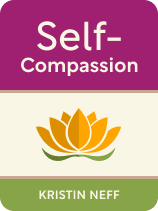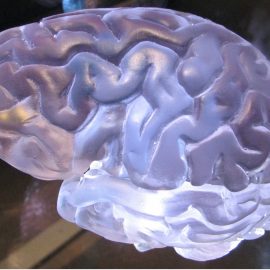

This article is an excerpt from the Shortform book guide to "Self-Compassion" by Kristin Neff. Shortform has the world's best summaries and analyses of books you should be reading.
Like this article? Sign up for a free trial here.
What are the benefits of self-compassion? How can self-love combat depression and anxiety?
Self-compassion is a beneficial practice that fosters growth and many rewards. In Self-Compassion, Kristin Neff claims there are three main benefits of self-compassion that humans can take advantage of.
Continue reading to learn why self-compassion can improve motivation, self-worth, and mental health.
Benefit 1: Self-Compassion Fosters Motivation
Neff says that one benefit of self-compassion is that it increases motivation because it’s rooted in an intrinsic desire to learn, grow, and cultivate a sense of well-being over the long term. As a result, people who practice self-compassion are inclined to consistently act in ways that put them on the path towards health and happiness—for example, by changing bad habits that take them off course from these goals. Being kind to yourself in the face of suffering further supports motivation by enabling you to create a safe, calm, and supportive environment that nurtures confidence, supports risk taking, and enables you to function at your peak.
Neff’s research supports the connection between self-compassion and motivation, finding that self-compassionate people:
- Have just as high standards for themselves as self-critical people.
- Are more likely to have concrete plans to achieve their goals, and more inclined towards personal growth, than people who judge themselves harshly.
- Are more forgiving of themselves when they don’t meet their standards and goals, seeing failure not as evidence of their low self-worth but as an opportunity to learn and grow—which improves their achievement of goals in the long run.
Neff says there’s a broadly held, erroneous assumption that self-compassion will make you lazy and unmotivated and that being tough on yourself is the only way to achieve your goals and find success. But the only way that self-criticism “works” to the extent that it does is by instilling fear—a known driver of anxiety that actually distracts from the task at hand and makes it difficult to function at your peak. Further, self-criticism prompts some people to employ self-sabotaging strategies to try to protect themselves from criticism and judgment, which often backfires and leaves them worse off.
For example, if you’re worried you won’t perform well in an upcoming competition, you may decide not to practice too hard, or to procrastinate until it’s too late for your efforts to be effective. Then, when you perform poorly, you have an excuse for why: “I barely practiced.” Of course, the problem is you employed strategies destined to lead to failure.
Benefit 2: Self-Compassion Contributes to a Stable Sense of Self-Worth
Neff argues self-compassionate people don’t experience the kinds of harmful fluctuations in self-worth that self-critical people do because their value isn’t rooted in external factors—specifically comparisons of themselves to others and their success or failure at achieving particular goals. Instead, self-compassion is an internally driven mindset that centers on your whole being. A self-compassionate person recognizes that success and failure come and go and don’t define you as good, bad, loveable, or unloveable. She says this is an important distinguishing factor of self-compassion from its often compared, deeply hyped neighbor, self-esteem.
Neff says that for decades, the field of psychology has wrongly propped up the idea that having high self-esteem (your assessment of your worth) makes you happier and leads to success. She argues that self-esteem is an unstable metric that can fluctuate unpredictably because it’s often based on factors outside your control, for example:
- How good you are at things that are personally meaningful to you, which is problematic if, for example, you most value looking young and beautiful—because it’s difficult to do forever.
- Your perception of what others think of you, which is problematic if, for example, you’re not innately confident in your intellectual abilities and someone tells you that you’re stupid, which can lead you to feel terrible about yourself.
Neff says that while external factors associated with self-esteem can prompt your sense of self-worth to skyrocket or plummet within seconds, self-compassion is always available to you, even during your worst moments. Instead of feeling bad about your failures (real and perceived), you can turn to self-compassion to meet and soothe your pain with kindness, recognizing your failure as an opportunity to grow and connect to others through the common experience of pain.
For example, if someone tells you that you’re stupid, you can take a moment to say to yourself (as you would to a close friend): “That was a really mean and untrue thing for them to say. You’re very smart. But I understand why someone saying that to you would be so hurtful because it’s unkind. Fortunately, you’re not the first person someone’s been unkind to and you, like others, will be okay and get past this. Let’s take a few minutes to do something nice for you, like get a hot tea.”
Benefit 3: Self-Compassion Reduces Anxiety and Depression
Neff says that research shows that people who are self-compassionate are less anxious and depressed than people who self-criticize because they’re able to acknowledge and respond to their negative thoughts and emotions rather than ruminate on them.
Recognizing your negative ideas and feelings as observable, temporary phenomena that come and go (Practice 1), as opposed to an all-encompassing reality from which there’s no escape, frees you from them. In addition, soothing and being kind to yourself during difficult moments (Practice 2) makes you feel safe and grounded, allowing you to connect to others’ experiences of suffering (Practice 3). When you broaden your focus this way, you’re more able to consider positive things, which helps balance your negative feelings and prevents you from ruminating on them.
(Shortform note: Experts describe the experience of getting hooked by your negative thoughts as “loop thinking.” Left unresolved, loop thinking can lead to anxiety, irritation, and the intensifying of negative thoughts and feelings. For example, if you believe someone misunderstood or is ignoring something you said, you may feel compelled to justify that you were right and go in circles in your head trying to figure out how you can prove it. You can lose time and energy doing this and, if you do it too often, will struggle to live an attentive, meaningful life.)
Neff says that research shows that people who are able to create a more open state of being through self-compassion are more likely to feel optimistic about their future and confident in their ability to navigate any challenges that may arise. This is because each time they tap into their well of self-support in the face of challenge, they feel better and increasingly learn to trust their ability to take care of themselves.
In contrast, people who are critical of themselves are unable to create this calm, secure space. As a result, when they face challenges, they feel unsafe, scattered, and disconnected, making them more likely to fixate on their problem, which can cause anxiety and depression.
Neff also says that there’s a biological reason people become entrenched in their negativity: Our brains have a negativity bias that makes us more inclined to remember negative things than positive things. This is because our brain detects negative information as a threat to be avoided, while positive information is less relevant to ensuring our immediate survival.
You can pull yourself out of a dark place by attuning yourself to how your negative emotions and suffering manifest in you physically. This grounds you in the present moment and allows you to respond gently to your pain without becoming consumed by it. For example, if you’re angry, you might notice that your jaw is clenched and say to yourself: “I notice that my jaw is clenched.” You can then think about the underlying feeling that’s leading you to clench your jaw and gently address that emotion and pain by saying to yourself, “I’m sorry you’re angry and hurting. This is a hard moment so it’s understandable to feel the way you do. You’ll get through this and everything will be okay.”

———End of Preview———
Like what you just read? Read the rest of the world's best book summary and analysis of Kristin Neff's "Self-Compassion" at Shortform.
Here's what you'll find in our full Self-Compassion summary:
- The key practices, benefits, and obstacles to embracing self-compassion
- How self-compassion can improve your relationships with others
- The two biggest obstacles to self-compassion and how to overcome them






